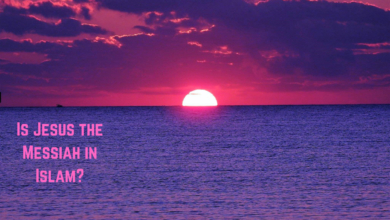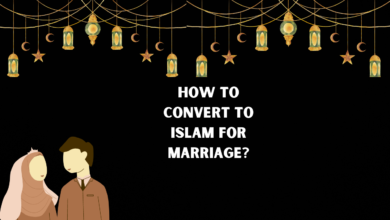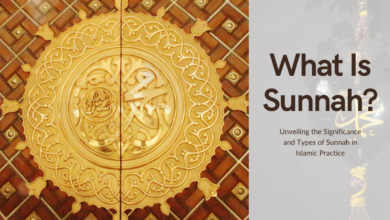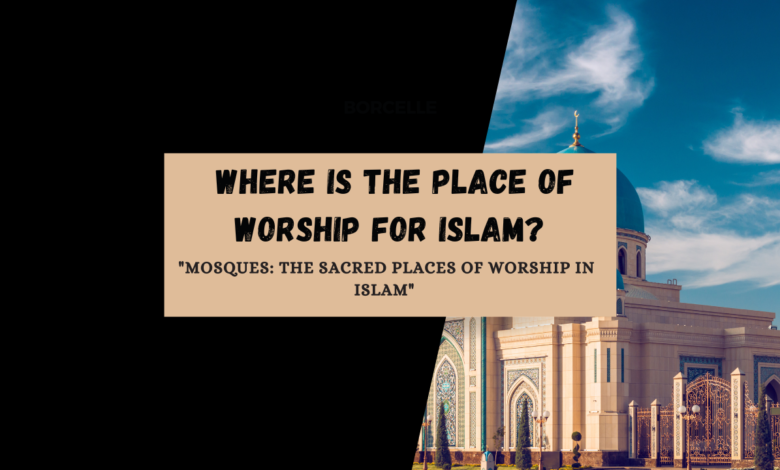
Where is the place of worship for Islam?
The primary place of worship for Islam is the mosque, also known as the masjid in Arabic.
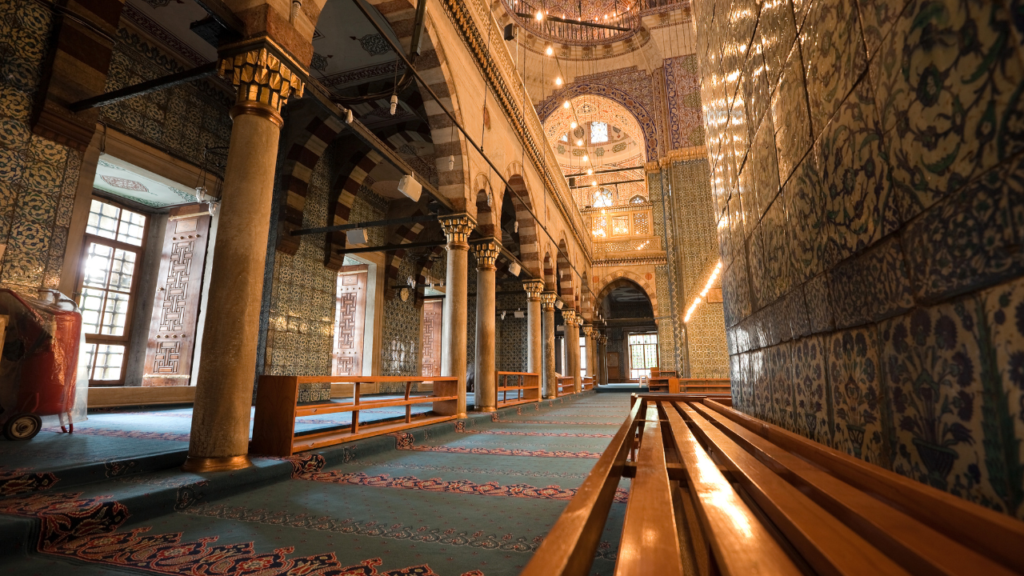
Introduction
Islam, one of the world’s major religions, is known for its deep spiritual connection and the practice of worship. At the heart of Islamic worship lies the concept of a sacred space where Muslims gather to commune with God, pray, and find solace. This sacred place of worship is known as a mosque, and it plays a crucial role in the life of every Muslim. In this article, we will explore the significance of the mosque in Islam, its architecture, and its role in fostering a sense of community.
The Significance of the Mosque
- Spiritual Center: The mosque is the spiritual center of Islam. It is a place where Muslims come to connect with Allah through acts of worship, primarily prayer (Salah). The call to prayer (Adhan) resonates from the minarets, inviting the faithful to gather and fulfill their religious obligations.
- Congregational Prayer: While Muslims can pray individually anywhere, the mosque holds special significance for congregational prayers. Friday prayers (Jumu’ah) are a notable example, where Muslims gather for a communal sermon and prayer, strengthening the bonds of the community.
- Education and Learning: Mosques are also centers of learning. Many mosques have attached madrasas or schools where children learn to read the Quran, understand Islamic teachings, and gain knowledge about their faith.
- Community Hub: Beyond its religious functions, the mosque serves as a community hub. It hosts social events, facilitates charitable activities, and provides a space for Muslims to come together, fostering a sense of unity and belonging.
Also Check
- Who was the Leader of Islam?
- Rights of a Muslim Wife upon Her Husband
- What is Ummah in Islam?
- Why did Prophet Muhammad like cats?
- Who was the Leader of Islam?
- What is Ummah in Islam?
- What conditions were laid between the Muslims and the infidels on the occasion of peace at Hudaybiyah?
Mosque Architecture
Islamic architecture is known for its distinctive features, and mosques are no exception. Here are some common architectural elements found in mosques:
- Minaret: A tall tower from which the call to prayer is issued. Some of the world’s most famous minarets can be found in cities like Istanbul, Cairo, and Marrakech.
- Dome: Many mosques feature a central dome, symbolizing the heavenly vault and the unity of God.
- Mihrab: A niche in the wall that indicates the direction of Mecca, which is the qiblah or the direction Muslims face during prayer.
- Minbar: A raised platform from which the Imam delivers the Friday sermon.
- Courtyard: Many mosques have an open courtyard where congregants can gather, particularly for special events and celebrations.
- Prayer Hall: The central area where Muslims gather for prayer, often with intricate designs and beautiful calligraphy.
Global Diversity of Mosques
The beauty of Islam lies in its global reach, and mosques around the world reflect this diversity. Here are a few notable examples:
- The Grand Mosque (Masjid al-Haram): Located in Mecca, Saudi Arabia, it is the holiest mosque in Islam and surrounds the Kaaba, the most sacred site in Islam.
- The Prophet’s Mosque (Masjid al-Nabawi): Situated in Medina, Saudi Arabia, it is the second holiest mosque and is the final resting place of the Prophet Muhammad.
- The Blue Mosque (Sultan Ahmed Mosque): In Istanbul, Turkey, famous for its stunning blue tiles and massive central dome.
- Sheikh Zayed Grand Mosque: Located in Abu Dhabi, UAE, known for its exquisite white marble architecture and capacity to hold thousands of worshipers.
Conclusion
The mosque is the heart of Islamic worship, a place where Muslims gather to connect with God, strengthen their faith, and build a sense of community. Beyond its religious significance, mosques also serve as architectural marvels and cultural landmarks around the world, showcasing the diversity and beauty of Islamic civilization. In an ever-changing world, the mosque remains a steadfast symbol of spiritual devotion and unity for the global Muslim community.
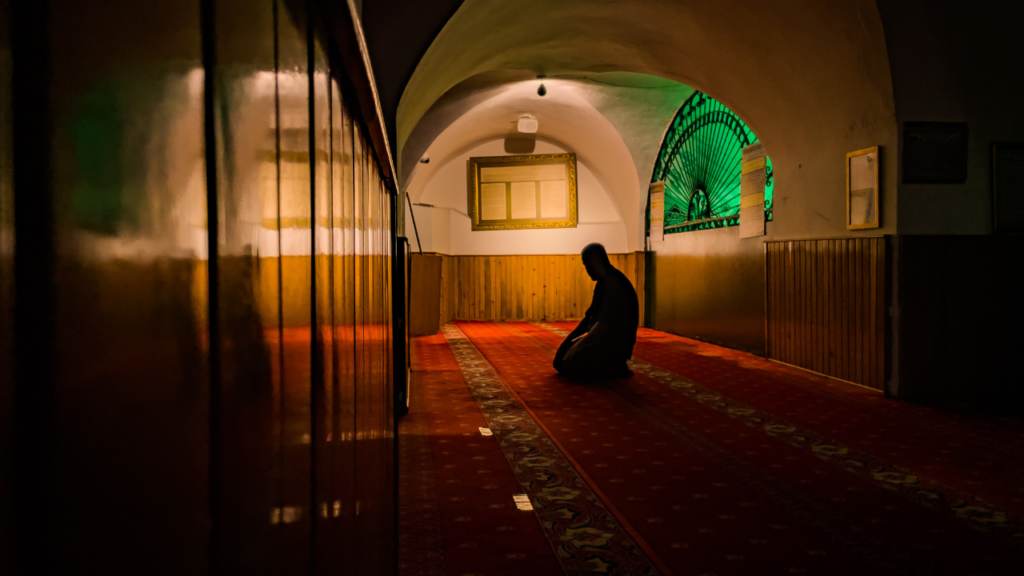
(FAQs) about the place of worship for Islam:
What is the primary place of worship for Islam?
The primary place of worship for Islam is the mosque, also known as the masjid in Arabic.
Are there specific requirements for a building to be considered a mosque?
Yes, a building must meet certain criteria to be considered a mosque, including having a designated prayer area, a mihrab (prayer niche), and a minaret (tall tower).
Why is the mosque important in Islam?
Mosques serve as the central gathering place for Muslims to pray, seek spiritual guidance, and strengthen their community bonds. They are essential for collective worship and Islamic education.
Are there different types of mosques?
Yes, there are different types of mosques, including the central mosque (usually the largest and most important in a city), neighborhood mosques, and smaller prayer rooms within institutions like universities or workplaces.
Can anyone visit a mosque, or is it only for Muslims?
Generally, mosques are open to anyone who wishes to visit, learn about Islam, or observe Muslim prayer. However, visitors are expected to dress modestly and respectfully and follow the mosque’s rules and etiquette.
What happens inside a mosque?
Inside a mosque, Muslims gather for daily prayers, Friday congregational prayers (Jumu’ah), Quranic recitation, religious lectures, and community events. It is a place for spiritual reflection and learning.
Is there a specific direction in which Muslims pray inside a mosque?
Yes, Muslims pray facing the Kaaba in Mecca, Saudi Arabia. This direction is called the qiblah, and it is marked by the mihrab in the mosque.
Are there any restrictions or rules for entering a mosque?
Yes, there are guidelines to respect when entering a mosque, including removing your shoes, dressing modestly, and maintaining a respectful and quiet demeanor. Non-Muslims may be asked to refrain from entering certain areas during prayer times.
Are mosques only places of worship, or do they serve other purposes?
While mosques are primarily places of worship, they also serve as centers for community activities, education, social gatherings, and charitable initiatives.
How are mosques funded and maintained?
Mosques are funded through donations from the Muslim community. They are typically maintained by a board of trustees or administrators responsible for overseeing the mosque’s operations and upkeep.

